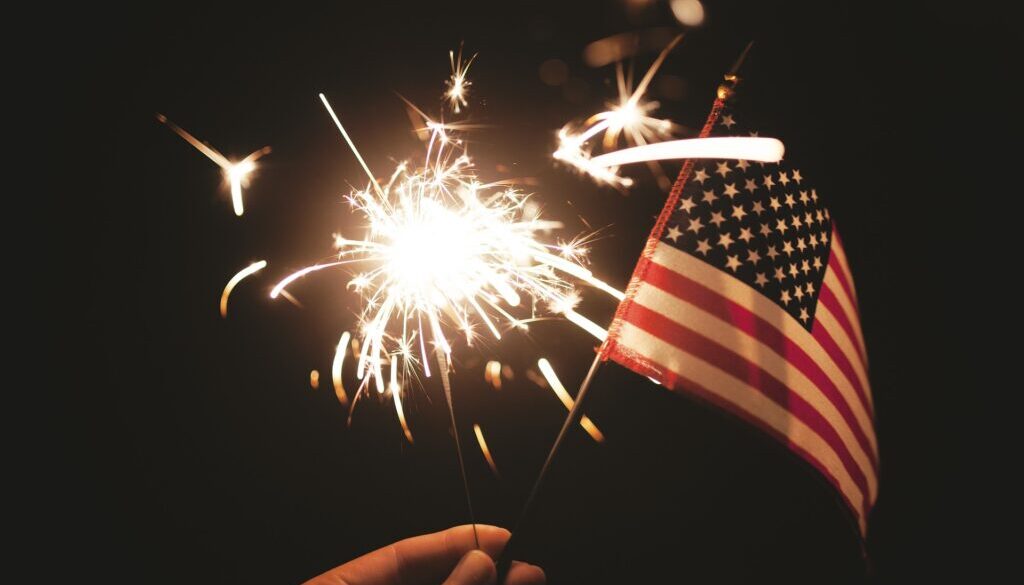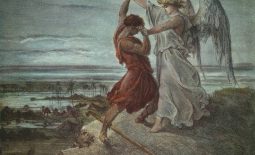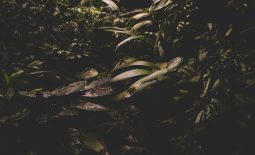A More Perfect Union
‘Mah tovu ohalecha Yisrael’ – ‘how good are your tents, Israel.’ For those of us who show up (or nowadays, tune in) at the beginning of services – and I salute your dedication – you will know that we sing these words as we enter our (physical, and nowadays, digital) sanctuary. Sermon after sermon has been given on the connection between these words and this week’s Torah reading, Chukat-Balak. They are, of course, the utterings of the gentile prophet Balaam, pried out of his mouth as blessings instead of curses by the God of Israel. Balaam gets sent on his unholy mission by King Balak, son of Tzippor, the Moabite king, who feared and resented the unwashed foreign hordes traveling through his land on the way to the Promised Land. That, too, has been an oft-explored angle. With great moral clarity, the Torah maps the xenophobia of its antagonists.
However, these are not the words I’d like us to look at this year. Instead, let us turn to another verse, often overshadowed by the narrative force of the portion. This verse is embedded in the prophecy of Balaam, a prophecy he utters three times, as he brings offerings on seven altars. Strangely, the God of Israel appears to Balaam and brings him ‘ruach hakodesh’, the Holy Spirit, and Balaam proclaims his inadvertent blessings: ‘hen am lebadad yishkon uvagoyim lo yitchashav’ – ‘there is a people that dwells apart, not reckoned among the nations.’ (Num. 23:9) Rashi, citing Targum Onkelos, intensifies the meaning of these verses, saying that Israel is destined not just to dwell alone, but to inherit the world entire in the Eschaton, its survival eternally guaranteed. One of the compelling features of the Balaam story is how it is one of the few instances where the Torah holds up a mirror to us; where we are shown an outsider perspective, as warped and bigoted it may be, of our identity as Israelites. It is not just garden variety xenophobia that drives King Balak and his prophet Balaam; it is their reaction to (and perhaps failure to comprehend) what we could call ‘Israelite exceptionalism’.
Those of you who are familiar with my teaching know that I often parse the deeper meanings behind Jewish particularism and universalism. Usually, this is a conversation about our self-perception. This portion allows us to ‘zoom out’ and, like the literal mountain top on which Balaam stands, to take a much broader view of who we are as a covenant people. Two weeks ago, we read how Israelites perceived themselves: ‘we are like grasshoppers in their eyes, and in our own’. Now we contend with how Israelites are perceived by others.
American exceptionalism has been on my mind a lot lately. As you may have heard, we received our green cards last week and we are now finally permanent residents, ‘gerei toshavim’ of the United States. This is the first time we will celebrate the Fourth of July with a much truer and deeper sense of belonging and it is all the sweeter for it. At the same time, our Fourth of July will be celebrated alone, with a modest family BBQ (on Sunday) instead of gathering with friends, because of the continuing and aggravated pandemic. We received word that US citizens and residents – which includes us! – are no longer allowed to travel to the European Union because of the dire state of the pandemic in this country. What does it mean for America to be ‘lebadad’, alone, in the world? Unique? Set-apart? Exceptional? What colors do these loaded words take? What hopes and fears, judgments and visions do we attach to them? And has America become more alone in the world than before?
I sit with the questions and will patiently allow the answers to evolve in me and my growing loyalties and investments in this country. As time passes by, my own unique identity as a European-American immigrant will develop and I welcome this strange, beautiful, difficult and wondrous journey we have been on. I, too, have seen my perspective on this country shift; from outsider to slowly becoming the ever-increasing insider. My perceptions of this country have been indelibly shaped by its call to exceptionalism.
This sermon is too small and humble an avenue to explore the full force of these ideas; ideas that I am still learning at the present moment. I am ignorant of many contexts, histories, truths and experiences, but know that as a patient and seasoned immigrant, these will come slowly. Still, one possible approach to the notion of exceptionism is to do something that we Jews are so very good at: love critically. In order to love this country critically, we need to listen to all of its voices, and, as the Torah commands us, particularly raise up the voices of those who have been and are presently unheard.
From the moment Jews settled in the New World to when George Washington wrote his 1790 letter to the Jews of Newport, Rhode Island, promising that ‘the Government of the United States, which gives to bigotry no sanction, to persecution no assistance requires only that they who live under its protection should demean themselves as good citizens’, we have enjoyed unprecedented freedoms in this land. Not without hostility and hate, not without constrictions and violence; but perhaps more freedom than in any other point of Jewish history. Thus it is our duty to raise up the voices of Americans who have remained dehumanized and unheard. As Frederick Douglass spoke, on the 5th of July 1852, when the grievous sin of enslavement still plagued this land:
“Fellow Citizens, I am not wanting in respect for the fathers of this republic. The signers of the Declaration of Independence were brave men. They were great men, too, great enough to give frame to a great age… …Would to God, both for your sakes and ours, that an affirmative answer could be truthfully returned to these questions! Then would my task be light, and my burden easy and delightful… But such is not the state of the case. I say it with a sad sense of the disparity between us. I am not included within the pale of glorious anniversary! Your high independence only reveals the immeasurable distance between us. The blessings in which you, this day, rejoice, are not enjoyed in common. The rich inheritance of justice, liberty, prosperity and independence, bequeathed by your fathers, is shared by you, not by me. The sunlight that brought light and healing to you, has brought stripes and death to me. This Fourth July is yours, not mine.”
Here in our hands, we hold two models to gaze upon this country, from our own vantage point, our own ‘mountain top’. Blessings and curses, life and death. In this striving for a more perfect union, there are many Americas; and we are called to heed them all. And to love critically and fiercely above all. We are neither grasshoppers nor giants, friends, but mere mortals invited into a great, purposeful, flawed, challenging mission—to always remember and always enact this great truth that all are created equal, with inalienable rights.
My family will continue to grow and thrive here; that is our great privilege, and unpack, slowly and surely, what this all means, and we will learn over time. For now, we will join a nation’s hallelujah’s, of which Douglass spoke so poignantly.
Happy 244th birthday, America.




